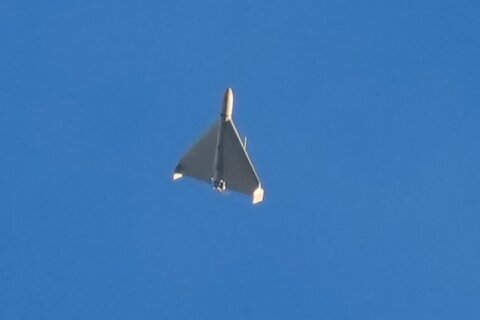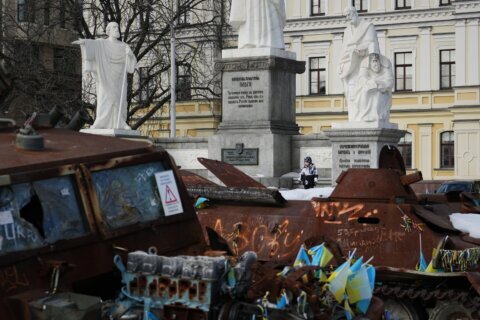The assassination of Lt. Gen. Igor Kirillov, the head of Russia’s Nuclear, Biological, Chemical Defense Forces, represents a defining moment in the ongoing Russia-Ukraine conflict.
Killed in a brazen bombing near his residence in central Moscow, Kirillov’s death underscores the vulnerabilities in Russia’s domestic security apparatus and signals the intensifying covert operations in this protracted war. The meticulously planned attack not only delivered a significant blow to Russia’s military leadership, but also set the stage for possible retaliation and strategic recalibration.
A meticulously planned operation
Kirillov’s killing, which Ukraine has taken credit for, was sophisticated and precise. The explosive device was concealed within an electric scooter near his residence and detonated via remote control as Kirillov and his assistant exited the building. The use of a high-yield explosive reflects careful preparation, ensuring maximum lethality while maintaining a low profile in a dense urban environment.
The operation in Moscow, one of the most heavily surveilled cities globally, required extensive reconnaissance. The attackers demonstrated an intimate understanding of Kirillov’s routine, the security measures in place and the layout of his neighborhood.
Surveillance likely included monitoring his movements, identifying vulnerable windows in his schedule and exploiting gaps in law enforcement coverage. This level of planning points to a highly skilled and well-resourced team, possibly supported by Ukraine’s Security Service, or SBU, which has claimed responsibility for the attack.
Kirillov was assassinated in the unremarkable residential neighborhood of Ryazansky Prospekt in southeastern Moscow. The area is characterized by mid-level housing, Soviet-era apartment blocks and modest local amenities. It lacks the high-profile security associated with elite neighborhoods or government compounds. This inconspicuous environment likely provided the attackers with an advantage, enabling them to blend in and avoid drawing attention.
Kirillov’s decision to reside in such a neighborhood raises questions about the adequacy of security measures for Russia’s high-ranking officials. While the choice may have been influenced by cultural norms, logistic considerations or state housing assignments, it inadvertently left him vulnerable.
The lack of heightened security in the area, combined with the routine presence of vehicles, such as electric scooters, created an ideal setting for the attackers to strike undetected.
Irreplaceable loss will likely trigger harsh retribution
Kirillov’s death is a significant blow to Russia’s military and strategic apparatus. He held a critical role in overseeing operations involving some of the most sensitive and specialized capabilities of the Russian military. His expertise in chemical and biological warfare made him an irreplaceable asset, particularly as these capabilities remain a cornerstone of Russia’s deterrence and unconventional warfare strategies.
His loss is likely to disrupt operations and delay ongoing projects under his purview. Furthermore, his assassination sends a chilling message to other high-ranking officials, potentially eroding confidence within the Russian military’s hierarchy and creating a sense of insecurity among leadership.
In the aftermath of Kirillov’s assassination, Russia’s response is expected to be both swift and severe.
Former Russian President Dmitry Medvedev has already vowed retaliation, signaling the Kremlin’s intent to hold Ukraine accountable. Possible responses include escalated military strikes on Ukrainian infrastructure, intensified efforts to target Ukrainian leadership or covert operations aimed at disrupting Kyiv’s security apparatus.
However, such actions carry risks.
Overreaching in its retaliation could further isolate Russia internationally, while missteps in execution could embolden Ukraine and its allies. The Kremlin will also face pressure to address the apparent weaknesses in its domestic security, especially in the face of such high-profile breaches.
Geopolitical and strategic ramifications
The assassination has broader implications for the Russia-Ukraine conflict.
For Ukraine, the operation is a symbolic victory, demonstrating its ability to strike at the heart of Moscow and retaliate for alleged Russian war crimes. It also serves as a morale booster for Ukrainian forces and a stark warning to Russia’s military leadership.
For Russia, the incident is a glaring reminder of vulnerabilities within its security infrastructure.
Moscow, long perceived as a secure stronghold, has been shaken by the attack. This perception shift could embolden adversaries and erode domestic confidence in the Kremlin’s ability to protect its key personnel.
On the international stage, the killing of Kirillov is likely to draw renewed attention to the use of unconventional warfare tactics. It may also prompt discussions about the legality and ethics of targeting military leaders in conflict zones, particularly in urban civilian environments.
Evolving nature of modern warfare
The assassination of Igor Kirillov may be a turning point in the Russia-Ukraine conflict, highlighting the evolving nature of modern warfare where high-profile, targeted killings play a strategic role.
As Russia contemplates its next move, the killing of Kirillov serves as a stark reminder that no target, regardless of rank or location, is beyond reach in this escalating war. The reverberations of this attack will likely be felt across the battlefield and in the geopolitical arena for months to come.
SIGN UP TODAY for J.J. Green’s new national security newsletter, “Inside the SCIF.” The weekly email delivers unique insight into the intelligence, national security, military, law enforcement and foreign policy communities.
Get breaking news and daily headlines delivered to your email inbox by signing up here.
© 2024 WTOP. All Rights Reserved. This website is not intended for users located within the European Economic Area.








